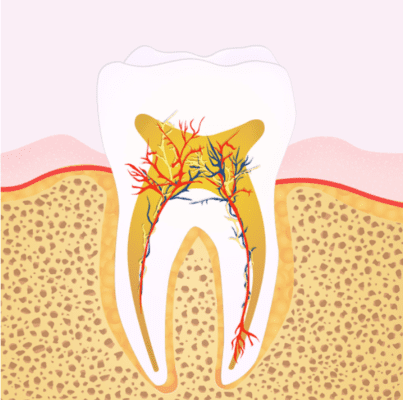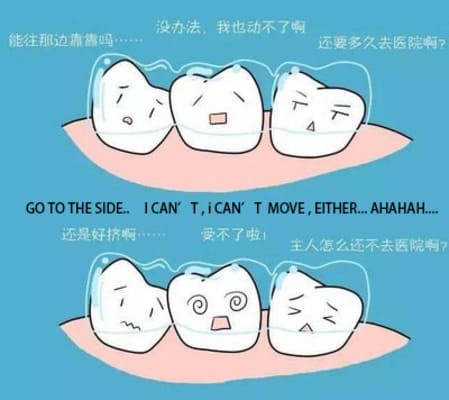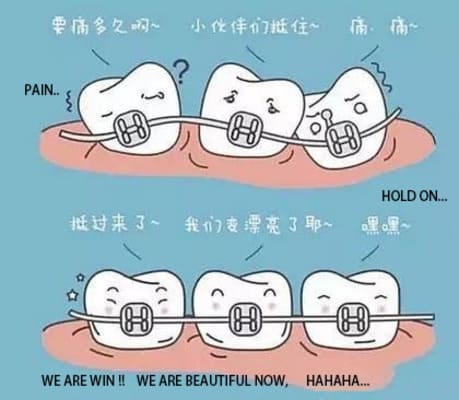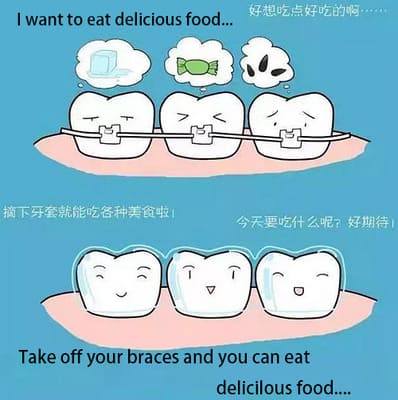Contraindications
Patients with periodontal disease, those who don't take good care of their teeth, or those who have good caries. Systemic diseases like hyperthyroidism, diabetes, tuberculosis, mental illness, etc., are not good candidates for orthodontic treatment. Neither are people with severe malnutrition or who are pregnant.
Complications
1.Demineralization of enamel and caries: During orthodontic treatment, many orthodontic devices are added to the mouth. If the cleaning habit is followed, many places that are hard to clean will be missed, causing irreversible demineralization of tooth surface (tooth surface becomes chalky) and serious caries (worm teeth).

2. Damage to periodontal tissue: Tooth movement and reconstruction of periodontal tissue need to follow a certain biological force. If the orthodontic force is wrong, it could damage the periodontal tissue in a way that can't be fixed.
3. Root resorption: Orthodontic treatment slowly changes the alveolar bone around the roots of the teeth. In the process, the alveolar bone around the roots of the teeth undergoes osteogenic and osteoclastic activity, which means that root resorption will happen to some degree.
The amount of root resorption often depends on how far the tooth needs to move, but in general, the amount of root resorption doesn't affect the tooth's stability as long as the right biological forces are used to push on the tooth.

4. Mucosal ulceration: At the beginning of orthodontic treatment, mucosal ulceration sometimes occurs after contact with orthodontic brackets. Ulcers can also happen during treatment if the ligature wire or the end of the arch wire rubs against the skin.
But most people can self-relieve after a while of adjusting.
5. Pain from braces and loose teeth: In normal situations, each tooth has a natural movement that helps to reduce the force of chewing and keep the teeth from getting hurt.
It is normal for loose teeth to get worse when you get orthodontic treatment. But this unwanted side effect of braces can be fixed. When teeth move, the alveolar bone and periodontal membrane need to be fixed.
This is because the periodontal membrane holds the teeth in the alveolar bone, so when it breaks, the teeth become loose. But once the teeth are in the right place and no longer moving, they can reattach to the periodontium and become stable on their own.
No permanent damage will have been done. So, if a dentist says the teeth are too loose, the force should be stopped, the teeth should rest for a while, and then the force should be added again.

6. Pulp reaction: In the early stages of orthodontic treatment, the pulp has a mild, temporary inflammatory reaction that causes pain or discomfort in the first few days the patient is at home.
However, the experiment showed that this effect is not clinically significant. This is one of the side effects of braces, but it will only last for a short time.

More information will be following,please check more on www.bestondental.com.
Contact: Tala lee
Phone: 86-15291766814
E-mail: [email protected]
Whatsapp:0086-15291766814
Add: Longhua street,shenzhen City,Guangdong,China
